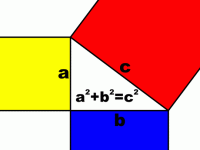What Can Educators Learn from the Gaming Industry?
Your content has been saved!
Go to My Saved Content.Editor's note: This post is co-authored by Cameron Baker, a game designer focused on "creating meaningful, engaging, provocative, and captivating experiences through strong, focused design and enticing story worlds."
As Jordan Shapiro said at the 2014 Global Education & Skills Forum:
Well, Jordan pretty much hits the nail on the head.
Once seen as a form of entertainment or a way to pass the time, games are now becoming prevalent in every industry -- particularly in education. Everyone is catching on to the fact that games are engaging. Games are addictive. Educational. Motivational. Games are powerful tools for change and learning.
But what gives games these qualities? And what can educators learn from the gaming industry that they can apply to teaching?
Free to Learn, Free to Play
Games present users with a mechanic -- that is, a set outline of rules and dynamics that guide gameplay -- and as players invest more time in the mechanic, they get a stronger understanding for how it works and an increased proficiency at applying the mechanic.
Take Braid or Portal. Players are briefly told how the main mechanic works, and are then left to discover how to solve the puzzles using the mechanic. As they progress, the puzzles become harder and require more knowledge of the mechanic and its applications. Think of it like an understanding of Pythagoras' theorem -- students must first grasp the basics and then use their knowledge to explore and solve new and increasingly complex problems.
However, it could easily be argued that gamers are much more motivated to solve a puzzle in Portal than students are to use Pythagoras' theorem to solve a problem in a test.
Why?
Because students in schools are absorbing and applying knowledge to pass a test. In a game, players are doing so because they want to explore and progress voluntarily. Players have intrinsic motivation in games -- a desire to finish the story, beat their friends, or achieve high scores -- and in doing so, they are willing to think laterally about how to solve problems.
Games allow for play and experimentation. Humans love to solve problems and create. Shouldn't this go for education as well? We just need to stop thinking of education as teaching a set of information that needs to be regurgitated, and start thinking of it as a way to approach and understand the world.
Failure is Most Certainly an Option - and It's Encouraged
When players don't defeat a boss in-game, they don't fail at the entire game. They're not embarrassed, and it doesn't affect their self-esteem. Rather, they can try again. And again. And again. They can experiment. They can get creative with their tactics.
Games give us a problem to overcome. If we don't overcome it at first, we try again. And as we re-attempt it, we identify gaps in our knowledge or begin to understand the system a little better so that we can start to develop "strategies" and eventually overcome the challenge.
Adding to this, games give extremely clear feedback. When you go in the wrong direction, the game will tell you so. If you aren't equipped with the correct weapon to defeat the boss, you won't defeat the boss (if you play The Legend of Zelda, you know this all too well).
However, if a student fails the SATs or a pop quiz, they are never presented with the opportunity to attempt the same problem again -- at least, not in a way that isn't met with the feeling that they failed drastically. Instead, a traditional learning environment tells its "players" that they only get one shot, one opportunity. And sometimes, students don't even know why they failed.
But what if educators allowed students to keep trying a problem over and over again until they succeeded? Rather than parrot back information or cram knowledge for the be-all-and-end-all test, students would develop a stronger understanding of the information they are given, and they'd have the opportunity to learn and develop their understanding at a deeper level – without becoming paralyzed by fear of failure along the way.
Games Allow for a Level of Abstraction
Games are sometimes explicit in their learning objectives but, more often than not, learning becomes a byproduct of a game.
Let's go back to the example of Pythagoras' theorem. At first, to the unknowing learner, it can seem intimidating, complex, and off-putting. However, traditional education systems don't allow for much abstraction. Students must learn that a2 + b2 = c2. They pretty much have no choice.
However, games aren't so limited. They incorporate metaphors, imagery, and ideas to help communicate concepts. Games allow players to learn on a subtextual level. They allow for secondary learning outcomes. They are well known for abstracting complex issues down to basic and easily digestible problems that users can interact with and begin to understand.
Students can really benefit from using games in the classroom, because sometimes abstraction through metaphors, re-enactments, and narrative can do the trick -- and do it well.
How have you used games in your classroom? Please share stories and strategies.
